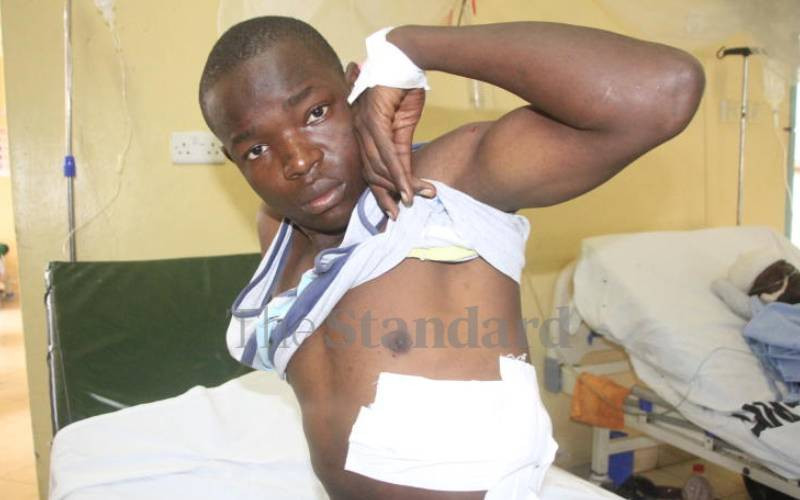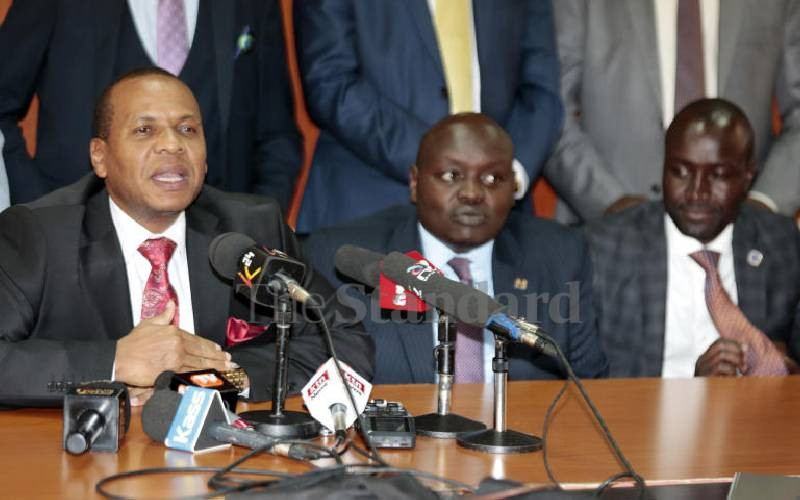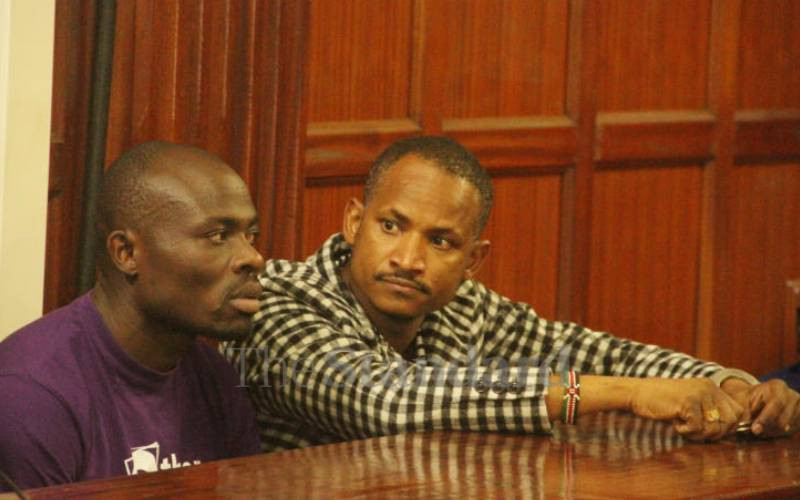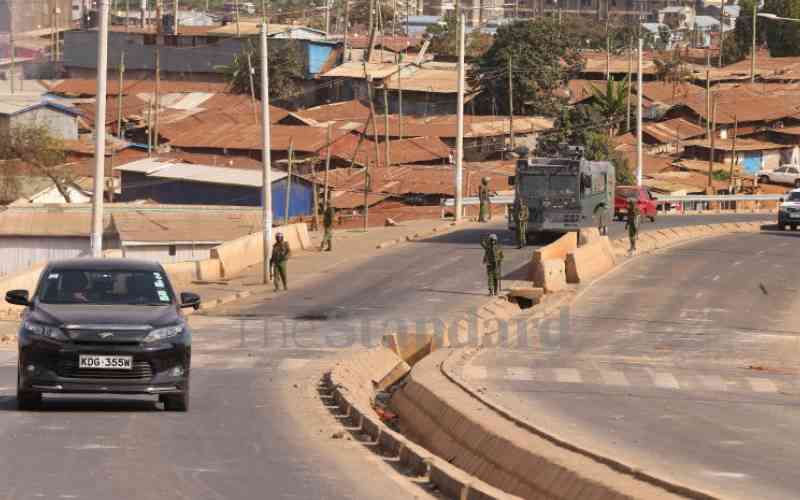Human rights groups have accused police of using excess force to quell anti-government protests against the high cost of living.
A string of kidnappings reported across the country have been linked to a sanctioned undercover squad. To evade accountability, police are accused of incorporating private militia to unleash terror on protesters.
Amnesty International, Kenya Human Rights Commission (KHRC) and Human Rights Watch on Thursday faulted police for causing death, injuries and making arbitrary arrests.
Human Rights Watch claimed the government has revived a special police unit, it says carried out abductions on Wednesday with the latest incident involving Boniface Akach who was allegedly kidnapped on Thursday at Kasagam in Kisumu County.
“In fact, as we speak, Boniface Akach, a human rights defender was abducted about an hour ago by individuals we strongly believe are members of this special unit revitalised under the administration of President William Ruto who had vowed that he will never allow police killer squads to exist under his watch,” said Human Rights Watch Director Otsieno Namwaya.
-
.
Keep Reading
-
Doctors rush to treat protesters beaten and shot by police officers
-
Kenya Kwanza senators rule out Ruto, Raila power sharing deal
-
State fights back Azimio by arresting ring leaders
-
Relative calm on day two of Azimio protests
According to Otsieno, the abductors of Akach are the same ones who kidnapped Azimio leader Raila Odinga’s bodyguard Maurice Ogeta on Wednesday. Akach is the convener of Kondele Community Social Justice Centre where he also volunteers as a documenter of human rights violations and police brutality.
“We are seeing an emerging pattern of kidnapping of individuals. It started in Kibra and now the number of those abducted is growing. To us this is the work of a state-sanctioned group deployed to assist in suppressing protests,” said Otsieno.
Moments after Ogeta was picked, Orange Democratic Movement (ODM) director of communication Philip Etale said the people who took away Raila’s aide were not in uniform.
“Unknown people in plain clothes, suspected to be police officers from the DCI, have abducted Raila Odinga’s bodyguard Maurice Ogeta while driving to work, bundled him in the car boot and driven away with him to an unknown destination. His whereabouts remain unknown,” tweeted Etale.
Otsieno said it was unlawful and unacceptable for ununiformed officers to be deployed to counter the Azimio protests. He claimed their preliminary investigations show that a special killer squad was behind the deaths reported in Mlolongo last week.
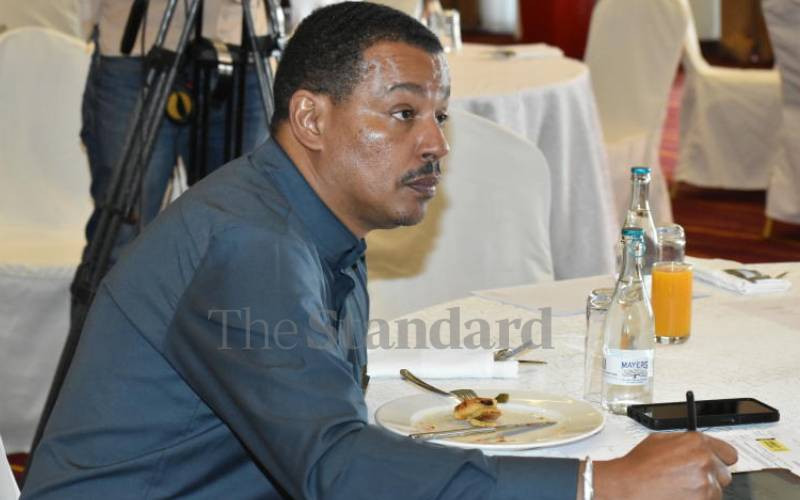
“What happened in Mlolongo is a clear case of involvement of the special unit deployed to carry out targeted killings. Although we are yet to establish the exact number of people who were killed, we understand this squad went on rampage long after the protests had quelled,” stated Otsieno.
Police however denied knowledge of the existence of such a squad. “I am not aware of that; I need to find out from the ground,” said police spokesperson Dr Resila Onyango.
Independent Policing Oversight Authority (IPOA) chairperson Anne Makori said they are keenly monitoring the demonstrations before coming up with a conclusive report.
“Apart from our Rapid Response team, which is responding to all the matters that need investigations, our approach to monitoring the general conduct of police in public order management is continuous and will surmount to recommendations in due time,” said Makori.
Since the demos began in March this year, Amnesty International Kenya says it has so far documented 30 deaths.
According to Amnesty, some 12 people were killed on between March 20 and March 27, another 12 during Saba Saba protests and six on Wednesday. Amnesty attributed to suffocation from teargas and lethal shootings.
“Amnesty International condemns the continued use of force against protesters. The continued attacks are leading to increased deaths and injuries of adults and children,” Irungu Houghton, Amnesty’s executive director.
Irungu said preliminary investigations reveal that the police used beatings, arbitrary arrests and detention on protesters.
“We call for an immediate stop to violent policing and criminalising of protests by the state. We demand urgent investigations and prosecution of police officers and their commanders for excessive use of force by the Independent Policing Oversight Authority and the Director of Public Prosecutions,” stated Irungu.
The Amnesty boss called on Inspector General of the Police Japhet Koome and Interior Cabinet Secretary Kithure Kindiki to take practical steps of guaranting the right of everyone to peaceful assembly and protest.
“We directly call on the National Police Service to facilitate all protests and adopt de-escalation tactics at all times when engaging protestors. Calls by political leaders urging the police to shoot and, or arbitrarily arrest protestors and brandishing private firearms must be arrested,” said Irungu.
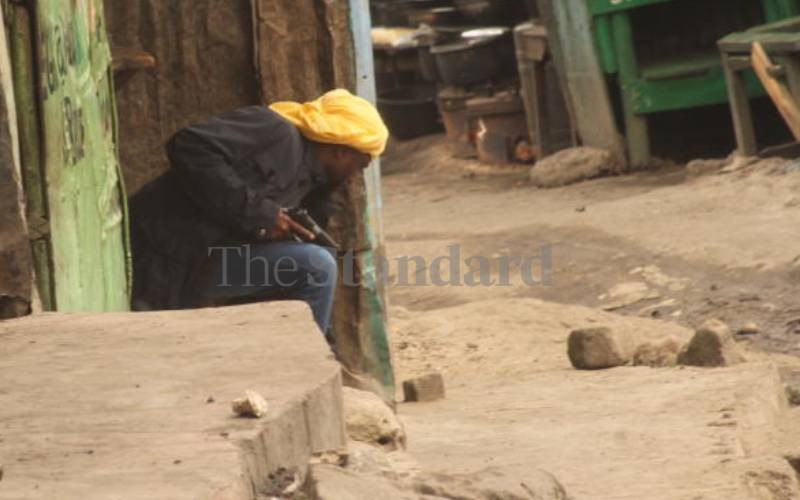
Amnesty raised concern over the increasing use of non-uniformed officers to effect arbitrary arrests of peaceful protestors contrary to Criminal Procedure Code and Police Standing Orders.
“For transparency and accountability, police officers must be identifiable by uniform or number badges to avoid abuse of power and other violations,” said Irungu.
According to Otsieno, Human Rights Watch witnessed armed militia accompanying police in Dandora estate.
“In Dandora last evening (Wednesday), we were shocked to see riot police arrive in the company of a group of armed militia. This is a dangerous trend if allowed to persist; it can easily degenerate into anarchy,” said Otsieno.
He accused police of deliberately violating the Public Order Act, in order to escape scrutiny. Otsieno said the law only requires those intending to protest or picket to notify police.
“But in this case (Azimio) the police are refusing to receive and grant the notification so as to turn around and declare the demonstrations illegal. They are basically twisting the law,” stated Ostieno.
Irungu reiterated that arrests should be carried out legally and not as a tool to punish or intimidate people.
“All those arrested have the right to know the charges being referred, legal representation, medical assistance and bail or bond within 24 hours,” he added.
KHRC Executive Director Davis Malombe likened police response to acts of terrorism leading to unnecessary deaths and injuries.
“There is a troubling pattern to show that police’s actions and use of lethal force were premeditated. First, authorities have failed to maintain official records of the deaths they caused on Wednesday, raising questions about accountability within law enforcement,” said Malombe.
He faulted police for allowing some of them to operate without uniforms and concealing their force numbers to avoid scrutiny. BY THE STANDARD MEDIA


